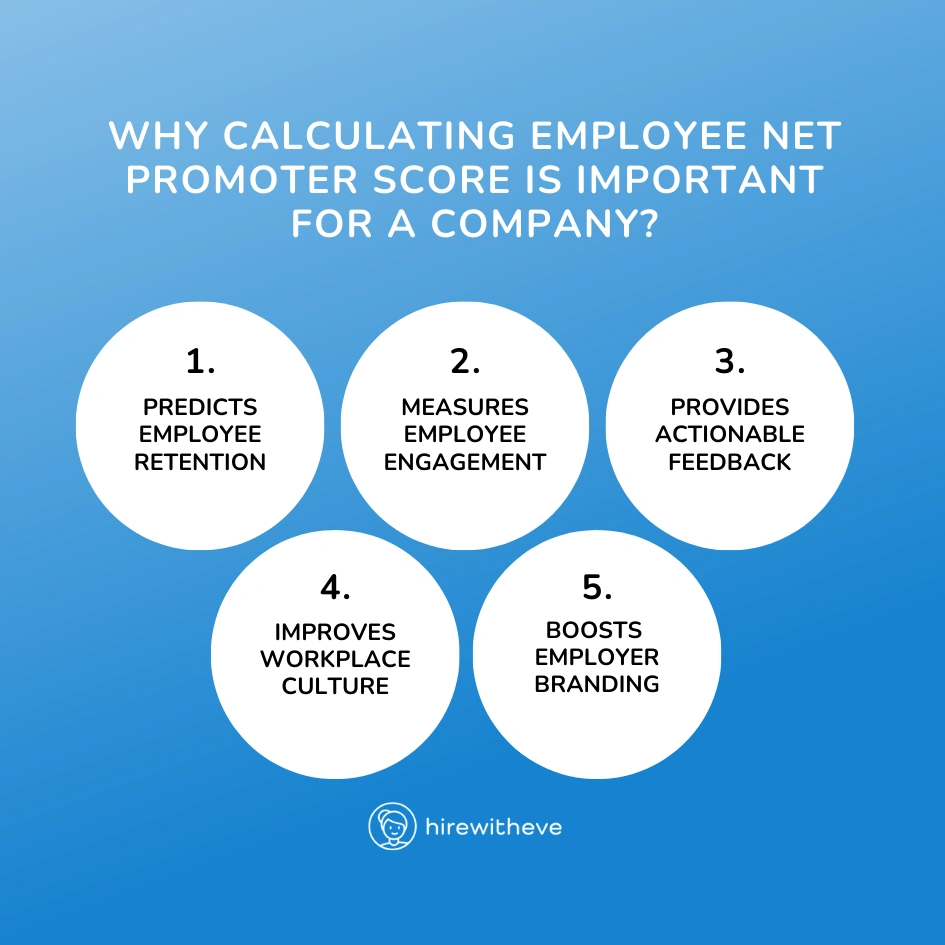What Is Employee Net Promoter Score and Why It Matters?

Imagine if you could quantify employee loyalty with just one simple question.
In today’s competitive business landscape, understanding employee sentiment is crucial for fostering a thriving workplace culture. Enter the Employee Net Promoter Score (eNPS) — a powerful metric that gauges employee loyalty and engagement by asking a straightforward yet profound question: “On a scale of 0 to 10, how likely are you to recommend this organization as a great place to work?”
This score not only provides valuable insights into employee satisfaction but also serves as a predictive indicator of retention and productivity. As organizations strive for continuous improvement, grasping the significance of eNPS can help leaders make informed decisions that enhance both employee experience and overall business performance.
What is an Employee Net Promoter Score (eNPS)?
The Employee Net Promoter Score (eNPS) is a metric used to measure employee loyalty and engagement within an organization. It is derived from the Net Promoter Score (NPS) concept, which assesses customer loyalty. The eNPS is calculated by asking employees a single question: “On a scale of 0 to 10, how likely are you to recommend this organization as a place to work?”
Based on their responses, employees are categorized into three groups:
Promoters (scores 9-10): Highly engaged employees who are enthusiastic about the organization and likely to recommend it to others.
Passives (scores 7-8): Moderately satisfied employees who are content but may not actively promote the organization.
Detractors (scores 0-6): Disengaged employees who may have negative feelings towards the organization and are unlikely to recommend it.
How to Calculate an Employee Net Promoter Score (eNPS)?
Conduct the Survey
Ask employees the key question: “On a scale of 0 to 10, how likely are you to recommend this organization as a place to work?”
Optionally, include a follow-up question for feedback.
Categorize Responses
Divide the responses into three groups based on their scores:
Promoters (scores 9-10): Employees who are highly engaged and likely to recommend the organization.
Passives (scores 7-8): Employees who are satisfied but not enthusiastic.
Detractors (scores 0-6): Employees who are dissatisfied and may speak negatively about the organization.
Calculate Percentages
Determine what percentage of respondents fall into the Promoter and Detractor categories.
Calculate eNPS
Subtract the percentage of Detractors from the percentage of Promoters. This will give you the eNPS.
Interpret the Score
A positive eNPS indicates more Promoters than Detractors, suggesting a positive work environment.
A negative eNPS suggests more Detractors than Promoters, indicating potential issues to address.
Example
If you survey 100 employees and find:
40 are Promoters,
50 are Passives, and
10 are Detractors
You would find that your eNPS is positive, indicating overall employee satisfaction and loyalty.
Why Calculating Employee Net Promoter Score Is Important for a Company?
Calculating the Employee Net Promoter Score (eNPS) is important for a business because it provides valuable insights into employee satisfaction, engagement, and loyalty.
Here are several key reasons why eNPS is crucial for businesses:

Predicts Employee Retention
A high eNPS indicates a satisfied and loyal workforce, while a low score can signal potential issues with employee engagement or job satisfaction. By tracking eNPS, businesses can identify early signs of employee dissatisfaction, which may lead to higher turnover if not addressed. This helps in retaining top talent and reducing the costs associated with frequent hiring.
Measures Employee Engagement
Engaged employees are more productive, innovative, and committed to their work. The eNPS provides a quick snapshot of how engaged employees feel toward the organization. A high eNPS often correlates with better teamwork, higher morale, and increased overall productivity.
Provides Actionable Feedback
Since the eNPS survey often includes open-ended feedback, businesses can gain direct insights into the factors driving employee satisfaction or dissatisfaction. This data enables companies to take targeted actions, whether improving workplace culture, offering better career development, or addressing specific pain points.
Improves Workplace Culture
Tracking eNPS allows organizations to foster a more positive workplace culture. By regularly measuring employee sentiment, companies can understand the impact of internal policies, leadership, and changes on employee morale. This helps build a stronger, more collaborative, and inclusive work environment.
Boosts Employer Branding
Employees who are Promoters (those who score 9-10 on the eNPS) are likely to speak positively about the organization. This boosts the company’s reputation, making it more attractive to prospective employees. A positive eNPS not only helps retain existing employees but also attracts high-quality talent.
Conclusion
Calculating Employee Net Promoter Score (eNPS) is an essential tool for any business looking to improve employee engagement, retention, and overall workplace culture. By keeping a close eye on employee satisfaction, companies can make informed decisions that lead to a more productive, motivated workforce.
A high eNPS not only strengthens the organization’s internal dynamics but also enhances its reputation as a great place to work, attracting top talent.
At HirewithEve.ai, we understand the critical role employee satisfaction plays in a company’s success. Our platform ensures that businesses make smarter hiring decisions by using pre-validated assessments to identify candidates who align with your organizational values.
